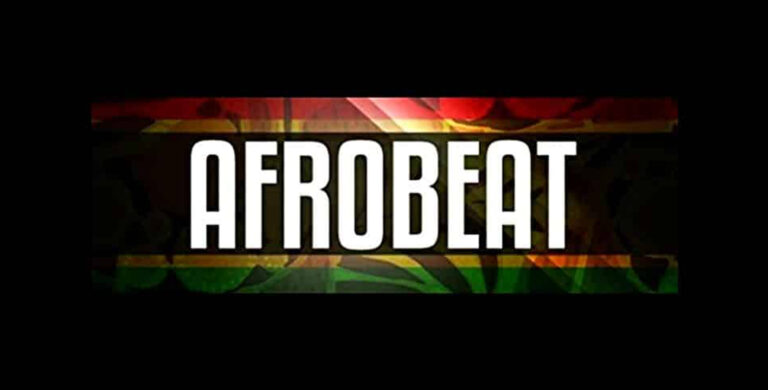The Afrobeat music genre, known for its fusion of traditional African rhythms, jazz, highlife, and funk, has deep roots in West Africa, particularly Nigeria. However, the influence of neighbouring Ghana on the development and evolution of Afrobeat cannot be overlooked. From its rich highlife traditions to its vibrant percussion and rhythmic complexity, Ghana has played a pivotal role in shaping the distinctive sound that defines Afrobeat.
Ghana’s musical landscape has long been adorned with the sounds of highlife, a genre that emerged in the early 20th century. Characterized by a blend of indigenous rhythms, Western instrumentation, and vibrant melodies, highlife provided a fertile ground for the seeds of Afrobeat to take root. Visionary Nigerian musician Fela Kuti, widely regarded as the pioneer of Afrobeat, drew inspiration from the infectious grooves of highlife. The influence of Ghanaian highlife is evident in the brass arrangements, guitar lines, and overall rhythmic structure that define Afrobeat compositions.
One of the defining features of Afrobeat is its intricate percussion and complex rhythms. Ghana, with its diverse ethnic groups and rich drumming traditions, contributed significantly to this aspect of the genre. The drumming styles of the Akan and Ewe people, among others, have left an indelible mark on Afrobeat. The hypnotic and polyrhythmic drum patterns that underpin Afrobeat compositions can be traced back to the rhythmic diversity found in Ghanaian traditional music.
The close proximity of Ghana and Nigeria has fostered a dynamic cultural exchange between musicians from both countries. Collaborations between Ghanaian and Nigerian artists have been instrumental in shaping the sound of Afrobeat. Musicians have seamlessly blended elements of their respective musical traditions, creating a melting pot of influences that characterize the genre. This cross-cultural collaboration has not only enriched the sonic palette of Afrobeat but has also contributed to its global appeal.
Both Ghana and Nigeria have a shared history of political and social activism through music. Ghanaian musicians, much like Fela Kuti in Nigeria, used their art as a powerful tool for addressing social and political issues. The conscious lyrics and socially relevant themes that are integral to Afrobeat can be traced back to this tradition of musical activism, which transcends national boundaries.
As highlife and Afrobeat gained international recognition, Ghanaian musicians continued to shape the global perception of African music. Pioneering acts like E.T. Mensah and Osibisa paved the way for contemporary Ghanaian artists to make their mark on the global stage. Today, the influence of Ghana on Afrobeat remains palpable, with a new generation of musicians from the country contributing to the genre’s ongoing evolution.
In the tapestry of Afrobeat’s intricate sound, Ghana stands as a vital thread, weaving together the rhythmic traditions, cultural exchange, and musical innovation that have defined this genre. The impact of Ghana on Afrobeat is a testament to the interconnectedness of West African musical traditions and the ability of artists to create a genre that transcends borders and resonates with audiences worldwide.


